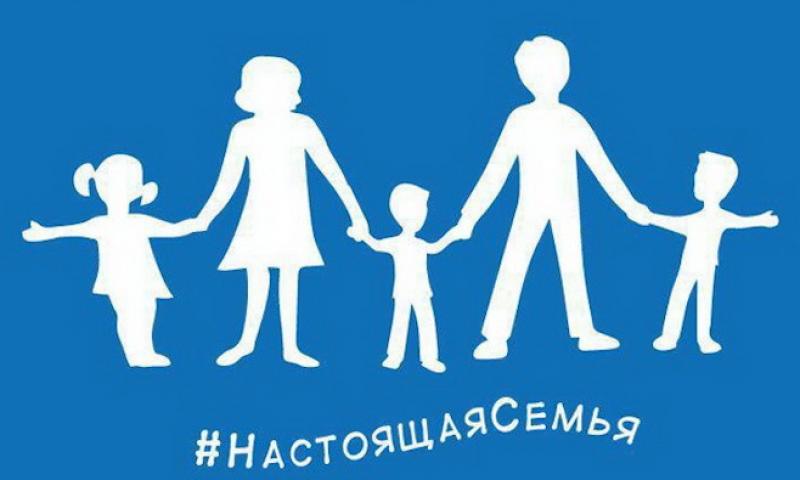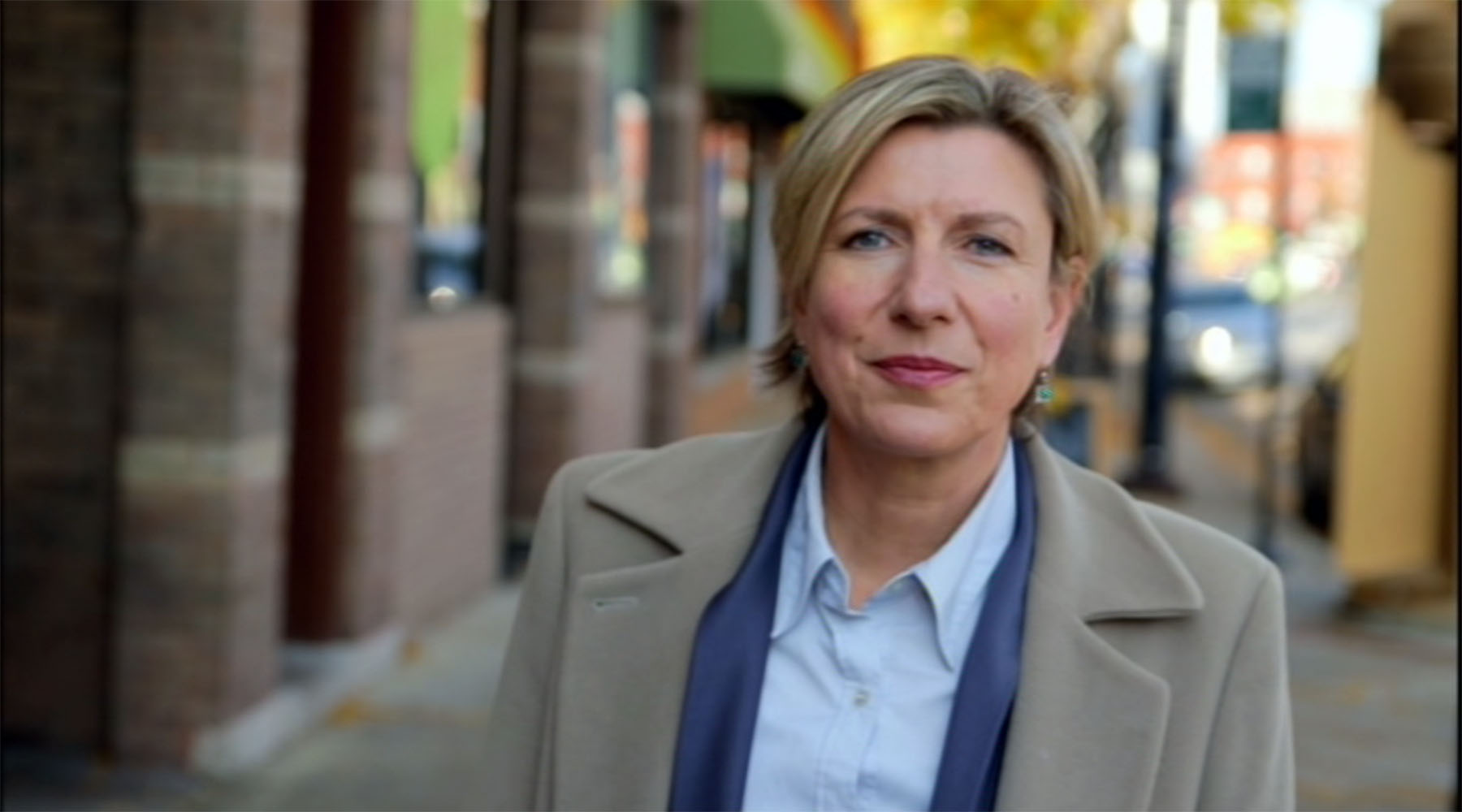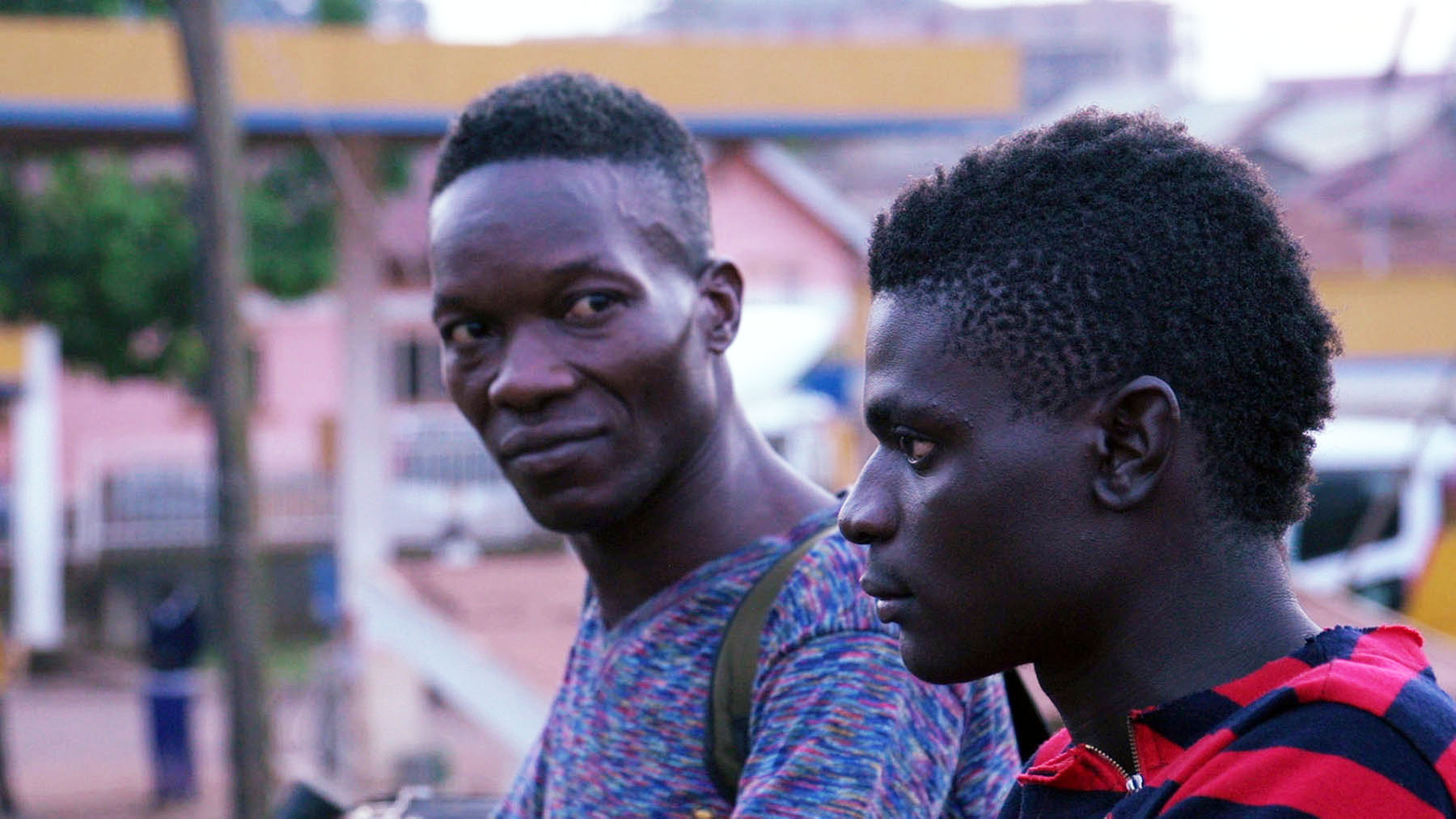Dispatches: Hunted - Gay and Afraid, Channel 4 | reviews, news & interviews
Dispatches: Hunted - Gay and Afraid, Channel 4
Dispatches: Hunted - Gay and Afraid, Channel 4
Meet the American right promoting 'family' values worldwide, resulting violence against gays notwithstanding

There can’t be many American public figures who are welcome on Russian television these days, but Brian Brown of the National Organization for Marriage is one of them.
In Gay and Afraid presenter Liz MacKean revealed just how close that unlikely bond has become, especially when set against the background of a wider political relationship between the two countries that’s as cold as it has been in three decades. Why “unlikely”, though? We heard that the WCF regarded the Kremlin’s criminalising the “propaganda” of “non-traditional” relationships to minors two years ago as a victory, while Russia’s increasingly shunned political elite is always keen to exploit almost any association with the outside world.
The attackers didn’t bother to disguise their identities to camera, knowing that the police just wouldn’t be interested
The title of this Dispatches film was something of a misnomer though, since it was much more about the American entities that are using their considerable resources to lobby similarly inclined political powerbrokers across the globe (after Russia, MacKean went on to Slovakia and Uganda). Not that she doesn’t know the world of those who are being persecuted for their sexuality, and where the level of that persecution is being racked up by new legislation as it is in Russia, inside out. MacKean (pictured below right) made another film for the Channel 4 strand last year, titled just Hunted, that caught the level of violent intolerance towards gays in St Petersburg on the eve of the Sochi Olympics.
Some of that footage – the so-called “safaris”, in which gay men are lured into what they think may be a date, and then assailed by a group of thugs who will beat them up, filming their humiliations and putting them up on social media – was reprised here. Hunted was a really visceral piece of television (watch it here), alarming not least for the sheer sense of impunity with which the attackers behaved; they didn’t bother to disguise their identities to camera, knowing that the police just wouldn’t be interested.
 MacKean’s primary interest here was in America, her new film starting at the WCF’s annual march in Washington, before she proceeded to meet some of those closest to the organization. She’s a valiantly persistent interviewer, but attempting to get any admission that rises in anti-gay violence might be a direct result of new legislation – Uganda passed an extreme anti-homosexuality law at the end of 2013, which though later annulled on a technicality, is likely to be reintroduced soon – brought home just how much minds were not meeting here.
MacKean’s primary interest here was in America, her new film starting at the WCF’s annual march in Washington, before she proceeded to meet some of those closest to the organization. She’s a valiantly persistent interviewer, but attempting to get any admission that rises in anti-gay violence might be a direct result of new legislation – Uganda passed an extreme anti-homosexuality law at the end of 2013, which though later annulled on a technicality, is likely to be reintroduced soon – brought home just how much minds were not meeting here.
We had Larry Jacobs, director of WCF (motto “beauty, goodness, truth”), just deploring violence, denying any possible connections, as well, of course, that his organisation was in any way helping to influence foreign law-making. He rather slipped up though, noting that the Russian legislation didn’t even contain the word "homosexuality", so the term “non-traditional” might equally refer to, er, bestiality. Then there was Pastor Scott Lively, who has been pressing his message that the “gay movement is an evil institution” home in Uganda for years, and proceeding from that to link homosexuality to paedophilia (a frequent refrain throughout). Was he going to believe the studies asserting that Ugandan homosexuals like Jonathan and Kim (pictured below) had seen higher rates of violent intolerance after changes in the laws? One stock reply to such questioning is, “I haven’t seen those figures”, another, more than exploited by Lively, to question the organizations reporting it: Amnesty International and Human Rights Watch had “taken sides,” even the UN was “not impartial”.
 Which made MacKean’s sojourn in Bratislava almost optimisic. Not for the fact, of course, that Slovakia’s gay pride marches are increasingly accompanied by a rising neo-Nazi movement, nor that activist Romana was worried about a new complacency following EU integration. When another well-funded transatlantic player Alliance Defending Freedom (ADF) started a petition that called for, among other things, a referendum defining marriage as between man and woman only, it gathered, with support from the Catholic Church, the necessary 350,000 signatures. The president referred it to the constitutional court, which, after lobbying, agreed it could go ahead. But when it did so this February, a low 21% turnout saw it declared invalid: apathy may not always be the enemy of progress.
Which made MacKean’s sojourn in Bratislava almost optimisic. Not for the fact, of course, that Slovakia’s gay pride marches are increasingly accompanied by a rising neo-Nazi movement, nor that activist Romana was worried about a new complacency following EU integration. When another well-funded transatlantic player Alliance Defending Freedom (ADF) started a petition that called for, among other things, a referendum defining marriage as between man and woman only, it gathered, with support from the Catholic Church, the necessary 350,000 signatures. The president referred it to the constitutional court, which, after lobbying, agreed it could go ahead. But when it did so this February, a low 21% turnout saw it declared invalid: apathy may not always be the enemy of progress.
ADF’s main lobbyist there was the slick lawyer Daniel Lipsic, a Slovak MP and former deputy-Prime Minister, who was the only one of MacKean’s interlocutors to give her anything like direct answers. Lipsic had pocketed annual fees that were double his MP’s salary for his consultancy for ADF, which in 2013-13 spent around $1 million challenging legislation around Europe. It has to, in fact, to protect its home ground, so that foreign cases can’t be cited as precedent in the American courts.
BBC Two’s Stephen Fry: Out charted some of the same territory two years ago, and it’s well worth catching the St Petersburg homophobia episode of Reggie Yates’ Extreme Russia which will be repeated on the BBC next week. That last one actually got, just a bit, into the mind of one of those whom, in MacKean’s original Hunted, we saw only at the other end of a fist. Deeper issues remain, however, what with Russian sociologist Igor Kon declaring in his time that the “specific feature of Russian political homophobia is its strict anti-Western orientation”; that reveals much about how popular homophobia in the country has been whipped up by the Putin regime to create the concept of an enemy, and distract attention from other issues.
A recent op-ed in The Moscow Times developed such sociological ideas further, as well as giving other chilling reasons why anyone supporting the family should pay attention to Russia: estimates that 10,000-14,000 women annually are murdered there by husbands or partners, compared to the US where, despite a population twice the size, that figure is 1,000-2,000. Not something that the WCF seems to be paying attention to.
rating
Explore topics
Share this article
The future of Arts Journalism
You can stop theartsdesk.com closing!
We urgently need financing to survive. Our fundraising drive has thus far raised £49,000 but we need to reach £100,000 or we will be forced to close. Please contribute here: https://gofund.me/c3f6033d
And if you can forward this information to anyone who might assist, we’d be grateful.

Subscribe to theartsdesk.com
Thank you for continuing to read our work on theartsdesk.com. For unlimited access to every article in its entirety, including our archive of more than 15,000 pieces, we're asking for £5 per month or £40 per year. We feel it's a very good deal, and hope you do too.
To take a subscription now simply click here.
And if you're looking for that extra gift for a friend or family member, why not treat them to a theartsdesk.com gift subscription?
more TV
 Murder Before Evensong, Acorn TV review - death comes to the picturesque village of Champton
The Rev Richard Coles's sleuthing cleric hits the screen
Murder Before Evensong, Acorn TV review - death comes to the picturesque village of Champton
The Rev Richard Coles's sleuthing cleric hits the screen
 Black Rabbit, Netflix review - grime and punishment in New York City
Jude Law and Jason Bateman tread the thin line between love and hate
Black Rabbit, Netflix review - grime and punishment in New York City
Jude Law and Jason Bateman tread the thin line between love and hate
 The Hack, ITV review - plodding anatomy of twin UK scandals
Jack Thorne's skill can't disguise the bagginess of his double-headed material
The Hack, ITV review - plodding anatomy of twin UK scandals
Jack Thorne's skill can't disguise the bagginess of his double-headed material
 Slow Horses, Series 5, Apple TV+ review - terror, trauma and impeccable comic timing
Jackson Lamb's band of MI5 misfits continues to fascinate and amuse
Slow Horses, Series 5, Apple TV+ review - terror, trauma and impeccable comic timing
Jackson Lamb's band of MI5 misfits continues to fascinate and amuse
 Coldwater, ITV1 review - horror and black comedy in the Highlands
Superb cast lights up David Ireland's cunning thriller
Coldwater, ITV1 review - horror and black comedy in the Highlands
Superb cast lights up David Ireland's cunning thriller
 Blu-ray: The Sweeney - Series One
Influential and entertaining 1970s police drama, handsomely restored
Blu-ray: The Sweeney - Series One
Influential and entertaining 1970s police drama, handsomely restored
 I Fought the Law, ITVX review - how an 800-year-old law was challenged and changed
Sheridan Smith's raw performance dominates ITV's new docudrama about injustice
I Fought the Law, ITVX review - how an 800-year-old law was challenged and changed
Sheridan Smith's raw performance dominates ITV's new docudrama about injustice
 The Paper, Sky Max review - a spinoff of the US Office worth waiting 20 years for
Perfectly judged recycling of the original's key elements, with a star turn at its heart
The Paper, Sky Max review - a spinoff of the US Office worth waiting 20 years for
Perfectly judged recycling of the original's key elements, with a star turn at its heart
 The Guest, BBC One review - be careful what you wish for
A terrific Eve Myles stars in addictive Welsh mystery
The Guest, BBC One review - be careful what you wish for
A terrific Eve Myles stars in addictive Welsh mystery
 theartsdesk Q&A: Suranne Jones on 'Hostage', power pants and politics
The star and producer talks about taking on the role of Prime Minister, wearing high heels and living in the public eye
theartsdesk Q&A: Suranne Jones on 'Hostage', power pants and politics
The star and producer talks about taking on the role of Prime Minister, wearing high heels and living in the public eye
 King & Conqueror, BBC One review - not many kicks in 1066
Turgid medieval drama leaves viewers in the dark
King & Conqueror, BBC One review - not many kicks in 1066
Turgid medieval drama leaves viewers in the dark
 Hostage, Netflix review - entente not-too-cordiale
Suranne Jones and Julie Delpy cross swords in confused political drama
Hostage, Netflix review - entente not-too-cordiale
Suranne Jones and Julie Delpy cross swords in confused political drama

Add comment